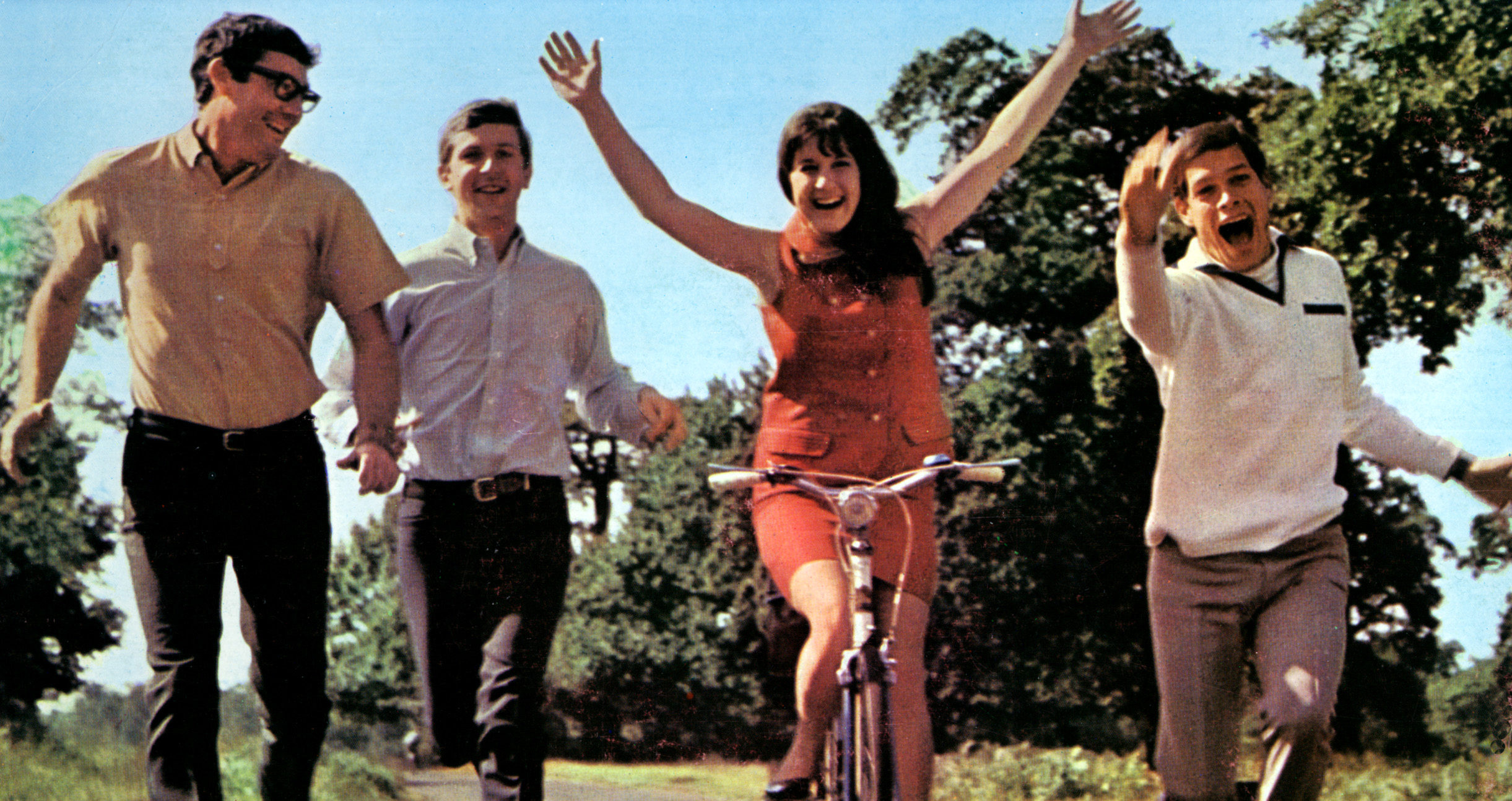Finding The Seekers
The ’60s pop group and its front woman Judith Durham, who died last week, were countercultural in the best way.

A few weeks ago, a YouTube video of a 1967 performance of the catchy tune “Georgy Girl” popped up on my computer screen. Remembering the song from my childhood—and only the song, not the group singing it, since I was four at the time of its release—I clicked and instantly fell under the spell of Judith Durham and her “boys.”
They were The Seekers, a pop group unlike any other in the 1960s. First, they hailed from Australia, not the United States or Britain. Second, they didn’t look like the others. The charmingly dimpled Judith sewed her own modest stage frocks, while the three young men—Athol Guy, Keith Potger, and Bruce Woodley—resembled bank tellers more than rock ‘n rollers, as one observer put it. They strummed and sang while clad in dark suits, and in Athol’s case, Clark Kent spectacles. Formal and clean-cut, they had the time of their lives, every time.
They coalesced organically rather than through targeted recruiting for a certain sound or character. The men had attended the same Melbourne high school, while Judith met Athol on her first day at a new secretarial job. He invited her to join his group for a gig that night at a local coffee house, and it was clear that the four had chemistry. For the next six years, they shot comet-like across the musical firmament, turning out such hits as “I’ll Never Find Another You,” “A World of Our Own,” and “The Carnival is Over,” displacing the Rolling Stones and other flashy bands on the musical charts. The buoyant “Georgy Girl,” composed for a British film with the same name, reached number two in the United States and earned an Oscar nomination as 1966’s Best Original Song (regrettably losing out to another film song, “Born Free”). The group’s success derived from a keen understanding of their own capabilities rather than from heeding musical trends. Whether plaintive ballads or rousing spirituals, they recorded only the songs that felt right for them.
Judith died on August 5th at age 79, just as I was getting to know her. But her radiant voice had been immediately obvious. Elton John called it one of the two purest voices he had ever heard (the other belonged to Karen Carpenter). It was not only beautiful; it was powerful. In one barn-burning rendition of “You Can Tell the World” from 1965 (available on YouTube), Judith begins as just one voice among four, but takes command after the opening chorus with palpable conviction.
Subscribe Today
Get daily emails in your inbox
Yet Judith was no prima donna. She had that soprano, but the boys (as she liked to call them) contributed in essential, if less salient, ways. Athol, who stood nearly as tall as the double bass he played with gleeful abandon, was the affable paterfamilias; Keith, the marquee guitarist with the cheerful mien; and Bruce, the versatile instrumentalist and songwriter. They had put in place some basic rules (all had to agree on which songs to record, for example), but it was their unwritten code of conduct—besides their looks and oeuvre—that made them so counter-cultural. Unfailingly positive and self-effacing, they supported one another always, at least in public. Judith claimed they were simply normal, hard-working people from similar backgrounds. They shared values, not least of which was a healthy respect for discretion. When one interviewer tried to wheedle out drama by asking about internecine romance, Judith diplomatically shut him down: “I had a crush on each one of them at various stages,” she smiled, sweetly.
It seems that the closest they came to real drama was when Judith announced in February of 1968 that she was leaving to pursue a solo career. Reflecting on that decision later, she revealed struggles with anxiety, especially about her weight, and her desire to get married. (She wed musical director Ron Edgeworth in 1969.) She didn’t anticipate the devastating impact her exit would have on her fans or, evidently, her fellow Seekers, who all went their separate ways. Judith’s solo career flourished. Athol turned to business and politics, serving three terms in the Victorian Legislative Assembly as a member of the center-right Liberal Party. He also bred thoroughbreds, telling one interviewer that friends stopped accompanying him to races because he yelled too much. Keith stayed in music, forming a different group—The New Seekers—best known today for its hit single “I’d Like to Teach the World to Sing.” Bruce produced television jingles and continued writing songs for various performers. When the foursome finally reunited in 1993 for a tour, Judith apologized to her bandmates for the hurt she had caused twenty-five years earlier. “The moment you said that, everything was gone,” Bruce told her gently, patting her shoulder.
That had always been The Seekers’ way. For Judith, Athol, Keith, and Bruce, decency never died. Even fame during the subversive 1960s hadn’t killed it. Judith’s boys gallantly guarded her girl-next-door reputation while respecting her immense talent until the very end. About her death last week, Athol said on behalf of her three surviving cavaliers: “Our lives are changed forever losing our treasured lifelong friend and shining star.”